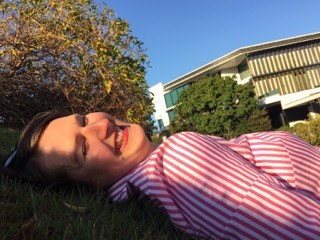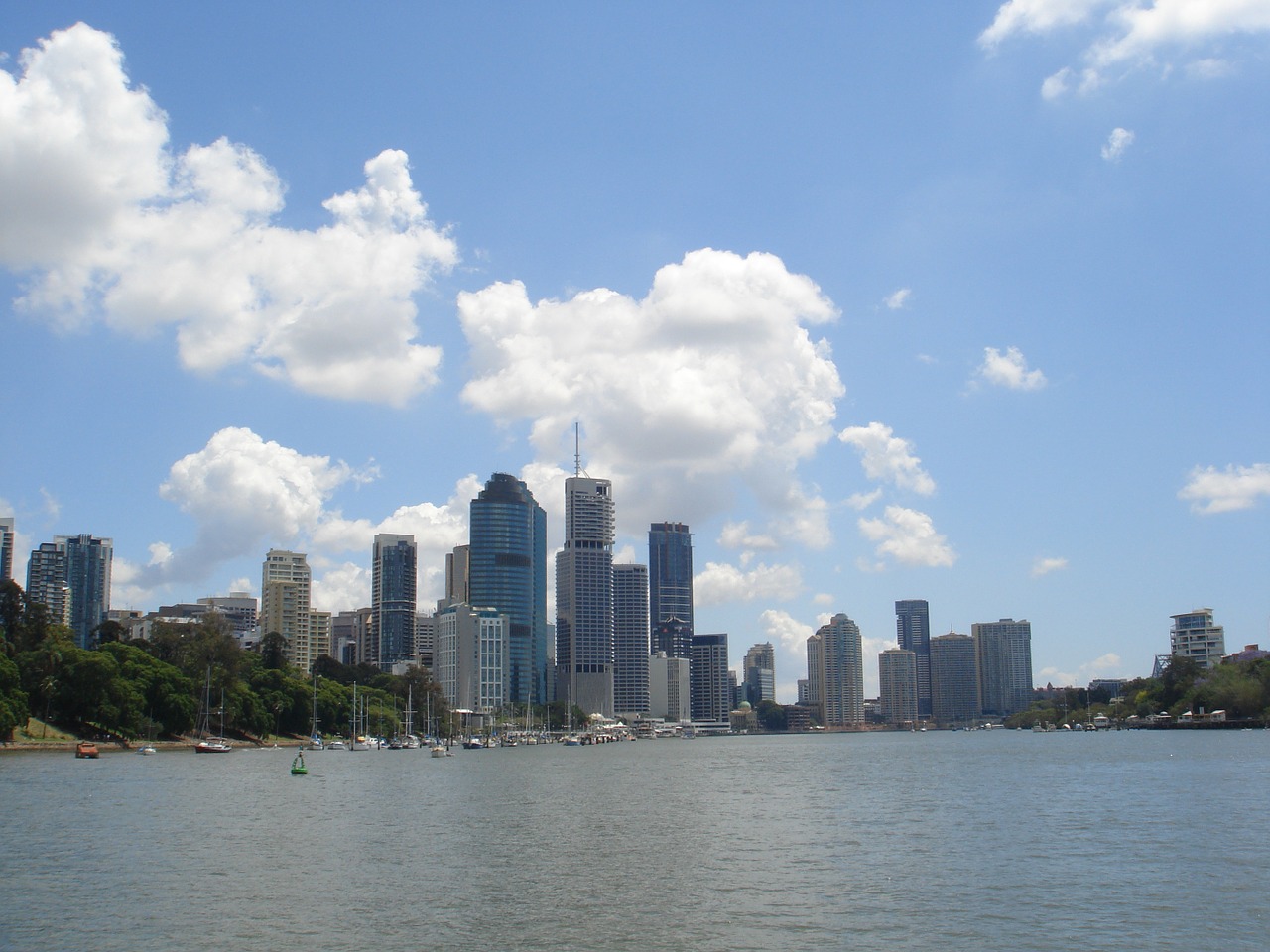
Thriving versus only just surviving medical school – by Stephanie Pommerel – first year medical student
I started medicine at the beginning of 2015 as prepared as I could be. GAMSAT preparation was itself a three-month intensive, punctuated by work and guided by a self-directed schedule not unlike that of an athlete, albeit academic instead of physical. Moments where I wasn’t looking at textbooks were spent avidly reading articles in the Australian, about matters I felt traditionally uninterested in, and later practicing essay writing. Sitting the 7-hour entrance exam was one of the most incredible experiences of my life. As the year progressed beyond the exam, I returned to my science studies part-time while working two jobs totalling full-time hours through the week. People – my family, friends and colleagues – thought I was amazing to be able to keep pace with my workload. They shook their head when I replied to their questions about what I was up, saying they didn’t know how I did it!
Then I started medical school. I had never before experienced nor, importantly, expected the level of busy-ness I was to come to understand was normal and if not unquestioned, accepted as the requirements of medical school. It became crucially important for me to continue to develop the support strategies that had allowed me to be as busy and productive I had been in the previous years.
Living at home with my parents, being able to debrief with them, able to discuss the enormity of the workload, my failure to keep up at times, verbally working through the planned schedule of approach, airing my own feelings of inadequacy, and hearing their words of advice has been invaluable. After all, these two people have known me since before I was born. They have seen my growth and development; they know my own inherent qualities that place me perfectly for eventual medical practice. Combined with close friends and extended family, such support keeps me grounded, providing a well needed reality check at times.
Although I unquestionably love living with my parents, I do not use their presence as a crutch. I am an adult who has lived out of home for many years, continue working one day a week and remain financially independent. I approached coming to live at home as a share-house situation. This means I buy my own food, then prepare and cook it for myself. I do my own washing and ironing. I clean the part of the house I live in, with the benefit of being able to share and support each other in chores and meals when we agree we are able to.
To this end, I take time out on my weekends to cook up ‘vats’ of food that I then freeze in containers. I might cook for myself a roast with plenty of vegetables so I can have ready-made lunches and dinners through the week. I eat a lot of fish, knowing the basics of the fatty acids contained therein as supportive for brain function. Through much trial and error over the preceding 10 years, I have eliminated substances that dull my body – foods that make me feel heavy, sleepy, tired, cranky or not ‘switched on’ after eating. This has seen me eliminate alcohol, caffeine, sugar, denser carbohydrates like potatoes and rice, amongst others.
Exercise also has its place, with a commitment to go to the gym between 1-3 times per week, depending on my schedule. If I can’t make that, then I will make a point of walking 20 minutes to half an hour, just appreciating the beauty of the world around me. I love to walk along the river after a day at uni, observing the trees with their flowers and foliage, the birds, the character of the clouds and the colours of the day in its sunset. I make a point to walk with conscious presence: feeling my feet as they strike the ground, feeling and noting where in my body tension has gathered, my arms swinging and my hips swaying naturally as I walk. I often meet others along the way and greet them with a smile; somehow, all of this puts enjoyment back in my day.

I have come to learn that if I don’t reconnect in this way to myself and to nature, I go to sleep and wake at night stuck on a mental program – running through disease mechanisms, or worse, what I haven’t been able to get done that day/week and the more that always awaits me. To wake exhausted, as many medical students do, creates a chore of the next day, a leaching of enjoyment, an inability to completely take in information, as well as mood changes and general feelings of struggling to cope. So begins the precipitous slope to burnout.
Despite the pressures of medical school, I am here because I love medicine, and I see the potential for not only my own personal growth through its expression, but also for that of my colleagues around me, as well as the field of medicine as a whole. By regularly reconnecting to the reasons I have chosen medicine, appreciating the qualities in myself that place me so well to practice it, I can reflect on each day’s course, seeing moments that I have truly enjoyed. I monitor my energy levels and note how well I am not only able to achieve, but also to relax, to release and let go the pressures that build during the medical course. These methods ensure that the first glimpse of feeling overwhelmed, burdened, or ‘over it’ are readily detected and techniques can be employed to regroup and recover my sense of enjoyment.
I know not all students are as fortunate as I to be attending university in their hometown, some not even in their primary language, so naturally their social networks will be different to mine. However, I encourage each of my colleagues to rediscover for themselves tools that truly support them and to have the honesty to discard those that hinder. I used to feel that discipline was a dirty word, but I know now there is no way I would be able to do what I do without enormous commitment and discipline to complete each required step as I progress. This approach tempers overachievement, which is short-lived and exhausting in its run, taking an enormous amount of energy to sustain. Conversely, I know that my approach will continue to develop as I enter rotations in hospitals and beyond, into general practice. I look forward to these challenges beyond medical school and to further evolving not just my own self-caring techniques, but supporting other students to find theirs.

Stephanie Pommerel is a first year medical student based in Queensland.


8 replies to “Thriving versus only just surviving medical school – by Stephanie Pommerel – first year medical student”
Hi Stephanie, what a great blog! Totally inspiring, and you make it sound so simple, which it can be! Not easy, a lot of hard work and dedication and commitment to your life and work are required, but if you make the commitment to care for yourself throughout the whole process, you will then be able to care for all others too. And that will make you a great doctor. Thank you for sharing your inspiring self with us.
Agreed Anne, what a great article – totally inspiring and practical and supportive.
HI Stephanie,
thank you for sharing this very important topic of supporting yourself through medical school. My partner is also in first year of medical school. Reading this blog sounds so familiar as his experience is very very similar to yours. It shows the importance of speaking about the challenges of completing such a program and ways to support oneself, and each other by sharing as you have done. Thank you
Hi Jemma,
Thanks for your comment. I feel is it very important for us not just to exclusively talk about the challenges we have as medical students. There is always going to be more work, another something to learn, but all of that is not possible unless we support outselves to the utmost to allow all of this to occur. I look forward to your partner joining that conversation.
Regards,
Stephanie
I love the way you have approached studying medicine, not just studying at the expense of your body and enjoyment of life but with the focus and discipline of an alete athlete. I haven’t studied medicine but I can relate to what you write as it parallels my experience of working very hard in my own business while studying a masters. I would have to say that I did not engage my day with the same level of care and focus that you do, in fact I would have really benefited from reading this article at that time. Really this article speaks to many and even related to motherhood and other intense periods of time.
What if we all treated ourselves with care and support using the same focus and dedication as an alete athlete? Thank you Stephanie
Just the word ‘discipline’ can create a tension in the body (I write from experience) so Stephanie, I appreciate how you have revealed a different approach to ‘commitment’ and ‘discipline’, particularly within such a ‘crazily’ intense uni course. These are wonderful lessons in the benefits of self-care, maintaining a support base and connecting with nature and people. Perhaps now we can now re-evaluate the word ‘discipline’ as a loving choice. Way to go!
Stephanie, I really love the honesty of your sharing and how you are choosing to support yourself through medical school. In particular your ability to enjoy the career study path you have chosen as you have mentioned here – “By regularly reconnecting to the reasons I have chosen medicine, appreciating the qualities in myself that place me so well to practice it, I can reflect on each day’s course, seeing moments that I have truly enjoyed.” Now if they only taught this in medical school, but then again you are the living, walking example of this for others to see.
Thank you Stephanie, I know so many people who have not coped with medical school and really done whatever it took to get through. This set them up to start their careers exhausted and burnt out and to consider that as normal. I can tell from reading your blog that this approach is not what you intend to make normal! The fact that you appreciate how you need to support yourself to work that hard, suggests to me that you will be a doctor who can walk your talk when it comes to health and wellbeing. Good on you.